Imperio Argentina
출생 : 1906-12-27, Buenos Aires, Argentina
사망 : 2003-08-22

What was the role of women in Spanish cinema from the 1930s to the present explained through fragments of different films, both fiction and non-fiction. (Followed by “Manda huevos,” 2016.)

The longing and critical review of the copla is lived through the history of the marqués de Almodóvar, a passionate ambassador who organized Franco's folkloric festivals; generous, womanizer, excessive, wasteful, himself the protagonist of his own copla. In love in his youth with a Concha Piquer chorus girl, he dedicated his life to collecting fetishes and memories of all the cante divas with which to organize a sentimental museum in his decaying castle, filling it with showcases where he could store his longings. When he died, destitute, in the pension of his last mistress, also a cupletist, she disputes her legacy with the housekeeper who took care of him and her picturesque collections all her life. family castle. A dear diplomatic friend recalls his fanciful existence emotionally. An aesthetic that is part of the feeling of the Andalusian people. And as a common thread "Ojos Verdes", the most beautiful song of songs of his rich songbook.


A homage to the Andalusian Copla produced for the Seville Expo 92. The so-called musical featured four of the most prominent Copla singers: Imperio Argentina, historic actress and then retired singer, Rocío Jurado, the biggest name at the time, Juanita Reina representing Sevilla and Nati Mistral representing Madrid, plus the newcomer María Vidal.

Tata
Elvira, daughter of a disgraced military, who entered a convent at a young age leaves him and returns home to settle in Madrid with his beloved nanny, seeking help to overcome their crisis. However, the country has changed so much in his years of confinement that has little or nothing to do with his childhood memories ...
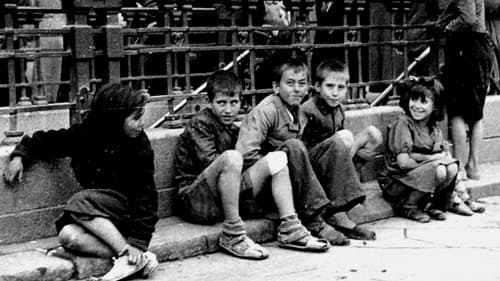
Self (archive footage)
A particular reading of the forties and fifties in Spain, the hard years of famine and repression after the massacre of the Spanish Civil War, using popular culture: songs sung by ordinary people, newspapers and magazines, movies and newsreels; the story of a country torn apart needing to overcome the memory of the war and face an uncertain and painful present.

Madre de Sebastián
The girlfriend of a young gypsy tries to guide her life in a proper way but does not achieve it. When she gets difficulties because of a fight everything changes.

Ama Rosa
Rosa gives birth to a child who, by circumstances of life, is given for adoption to a wealthy family who lost theirs during childbirth. Soon, Rosa will be working for the new family of his son and, so, without anyone knowing, will give him all her love.

In the mid nineteenth century, flamenco singing and dancing bring together their most loyal fans in a tablao in Andalusia where Rosarillo, an attractive singer unleashes the passions of his audience. On her wedding night, while the gypsy sings from deep emotion of her heart, her husband is murdered. Her feelings will be truncated at once, and in front of all those present, she swears revenge.

Soledad 'La Cigarra'
Soledad, known as "La Cigarra", agrees to sing in Buenos Aires to have the opportunity to meet her liar boyfriend, whom she tries to forget in Rio.

Dolores
After the infamous song that made her life impossible in Calatayud, Dolores flees. In another village she find accommodation and a widower husband with a daughter. This girl and the brother who launched the offensive again make life miserable for the unfortunate Dolores.

Soledad is a young Spanish singer of the last century that everyone wants to conquer. But she only has eyes for one man, Pepe Velazquez, owner of the cafe where she sings. After several incidents caused by all kinds of jealousy and misunderstanding, Pepe embarks for America, leaving Soledad by Manolo, a young man of his town that has always been in love with her.

Bambú
Alejandro is a young composer from Madrid who, overwhelmed by a sentimental and artistic failure, decides to enlist as a volunteer soldier and go to war-torn Cuba, where he befriends Antonio, who becomes his best friend.
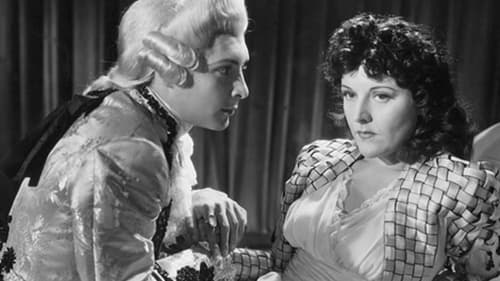
Petrilla / Condesa de Gualda

Floria Tosca
Non-musical account of Puccini's opera: Tosca and Cavaradossi are in love, but the tyrant Scarpia desires Tosca and oppresses Cavaradossi who is fighting for freedom.

Aixa
Abslan and Hamed, two cousins of very different character and lives, whose families have put an end to old quarrels, become rivals for the love of the young and beautiful half-breed Aixa.
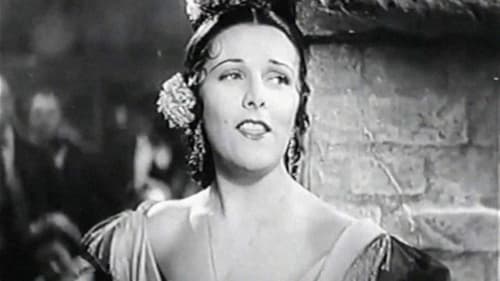
Carmen
The story of a beautiful, vivacious gypsy girl and the two doomed men who fall for her.
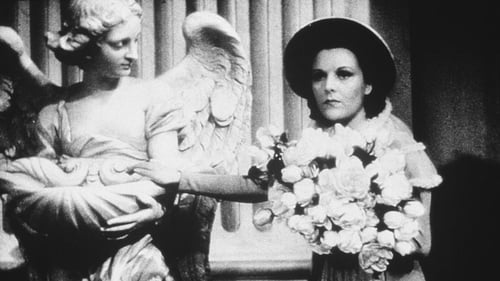
Carmen - eine Zigeunerin
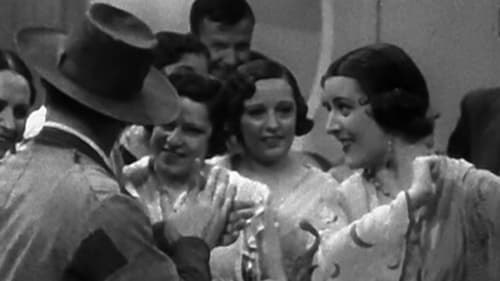
Trini
Trini and her brother Regalito are two gypsy brothers stealing hams. At trial, the severe prosecutor Enrique accused them of the misdemeanor, although they do not understand the nature of their crime and the justice of non-gypsies. Trini ends up serving in the house of the prosecutor, who, discovering her good heart, eventually falls in love with her.

María del Pilar
Aragón, Spain, early 20th century. María del Pilar is a honest girl whose good name is dirtied when an old suitor seeking revenge accuses her of losing her virginity outside of marriage. The scandal soon spreads throughout the countryside.

Gloria / Hermana San Sulpicio

Carmen Rivera
A creole singer tries to date with dancer, who tries to avoid him.

Alina
The life of Roberto takes place in a suburban bar between singing and letters. There, along with his partner, as scamming unsuspecting lives falls into the table. One night she crosses paths a young piano teacher hear him sing and gives him the chance to do it professionally. The fame and love give Roberto a chance to redeem himself.

Gisèle Landry

Classic spanish movie

Gloria / Hermana San Sulpicio
Spanish silent comedy based on Armando Palacio Valdés' novel. It was the first film starring Imperio Argentina.
















